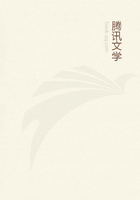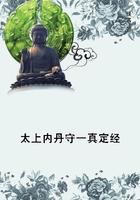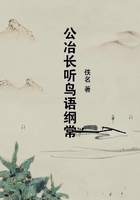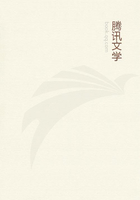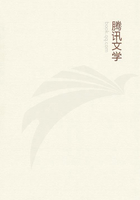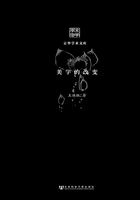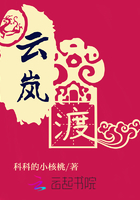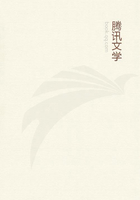But since no one nature or state either is or is thought the best for all, neither do all pursue the same pleasure; yet all pursue pleasure. And perhaps they actually pursue not the pleasure they think they pursue nor that which they would say they pursue, but the same pleasure; for all things have by nature something divine in them.
But the bodily pleasures have appropriated the name both because we oftenest steer our course for them and because all men share in them; thus because they alone are familiar, men think there are no others.
It is evident also that if pleasure, i.e. the activity of our faculties, is not a good, it will not be the case that the happy man lives a pleasant life; for to what end should he need pleasure, if it is not a good but the happy man may even live a painful life? For pain is neither an evil nor a good, if pleasure is not; why then should he avoid it? Therefore, too, the life of the good man will not be pleasanter than that of any one else, if his activities are not more pleasant.
14
(G) With regard to the bodily pleasures, those who say that some pleasures are very much to be chosen, viz. the noble pleasures, but not the bodily pleasures, i.e. those with which the self-indulgent man is concerned, must consider why, then, the contrary pains are bad. For the contrary of bad is good. Are the necessary pleasures good in the sense in which even that which is not bad is good? Or are they good up to a point? Is it that where you have states and processes of which there cannot be too much, there cannot be too much of the corresponding pleasure, and that where there can be too much of the one there can be too much of the other also? Now there can be too much of bodily goods, and the bad man is bad by virtue of pursuing the excess, not by virtue of pursuing the necessary pleasures (for all men enjoy in some way or other both dainty foods and wines and sexual intercourse, but not all men do so as they ought). The contrary is the case with pain; for he does not avoid the excess of it, he avoids it altogether; and this is peculiar to him, for the alternative to excess of pleasure is not pain, except to the man who pursues this excess.
Since we should state not only the truth, but also the cause of error-for this contributes towards producing conviction, since when a reasonable explanation is given of why the false view appears true, this tends to produce belief in the true view-therefore we must state why the bodily pleasures appear the more worthy of choice. (a) Firstly, then, it is because they expel pain; owing to the excesses of pain that men experience, they pursue excessive and in general bodily pleasure as being a cure for the pain. Now curative agencies produce intense feeling-which is the reason why they are pursued-because they show up against the contrary pain. (Indeed pleasure is thought not to be good for these two reasons, as has been said, viz. that (a) some of them are activities belonging to a bad nature-either congenital, as in the case of a brute, or due to habit, i.e. those of bad men; while (b) others are meant to cure a defective nature, and it is better to be in a healthy state than to be getting into it, but these arise during the process of being made perfect and are therefore only incidentally good.) (b) Further, they are pursued because of their violence by those who cannot enjoy other pleasures. (At all events they go out of their way to manufacture thirsts somehow for themselves. When these are harmless, the practice is irreproachable; when they are hurtful, it is bad.) For they have nothing else to enjoy, and, besides, a neutral state is painful to many people because of their nature. For the animal nature is always in travail, as the students of natural science also testify, saying that sight and hearing are painful; but we have become used to this, as they maintain. Similarly, while, in youth, people are, owing to the growth that is going on, in a situation like that of drunken men, and youth is pleasant, on the other hand people of excitable nature always need relief; for even their body is ever in torment owing to its special composition, and they are always under the influence of violent desire; but pain is driven out both by the contrary pleasure, and by any chance pleasure if it be strong; and for these reasons they become self-indulgent and bad. But the pleasures that do not involve pains do not admit of excess; and these are among the things pleasant by nature and not incidentally. By things pleasant incidentally I mean those that act as cures (for because as a result people are cured, through some action of the part that remains healthy, for this reason the process is thought pleasant);by things naturally pleasant I mean those that stimulate the action of the healthy nature.
There is no one thing that is always pleasant, because our nature is not simple but there is another element in us as well, inasmuch as we are perishable creatures, so that if the one element does something, this is unnatural to the other nature, and when the two elements are evenly balanced, what is done seems neither painful nor pleasant; for if the nature of anything were simple, the same action would always be most pleasant to it. This is why God always enjoys a single and simple pleasure; for there is not only an activity of movement but an activity of immobility, and pleasure is found more in rest than in movement. But 'change in all things is sweet', as the poet says, because of some vice; for as it is the vicious man that is changeable, so the nature that needs change is vicious; for it is not simple nor good.
We have now discussed continence and incontinence, and pleasure and pain, both what each is and in what sense some of them are good and others bad; it remains to speak of friendship.

